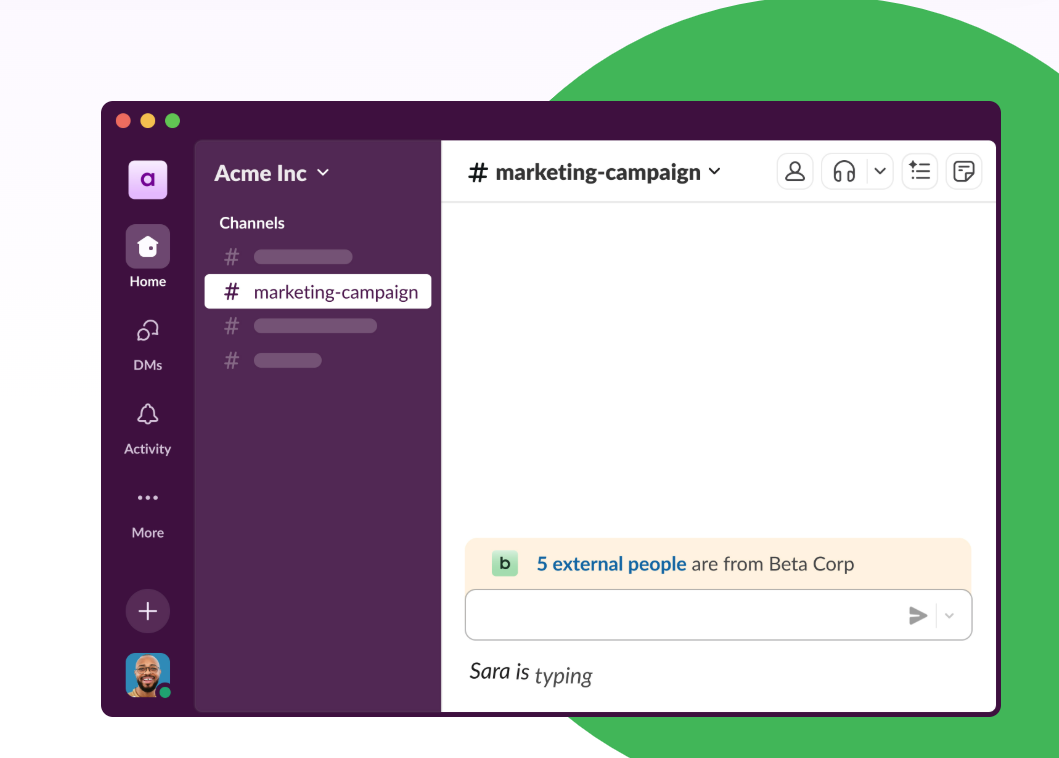Half of workers in Singapore feel uncomfortable admitting AI usage at work, says new Slack Workforce Index

While artificial intelligence (AI) adoption is on the rise in Singapore, half of workers in the country feel uncomfortable admitting AI usage at work, according to Slack’s new Workforce Index.
Slack said in a statement on last Friday that 52 percent of workers in Singapore are using AI in their jobs and 53 percent excited about the prospect of AI replacing some tasks.
However, it noted that while business leaders continuing to emphasize urgency in leveraging the technology and the traction seen in Singapore, global AI adoption rates have slowed over the last three months — growing from 32 percent to just 36 percent.
In addition to a lack of training from employers, the research points to uncertainty and discomfort around AI usage.
It showed that 45 percent of workers in Singapore report feeling uncomfortable admitting AI use to their managers for fear they might be seen as incompetent, lazy, or cheating.
It is noted that McKinsey data revealed that AI could increase corporate profits by $4.4 trillion a year, and Salesforce research found that sales teams using AI are 1.3 times more likely to see revenue increase than those who don’t use it.
To realize the benefits of AI, Slack opined that employers need to encourage employees to use the technology and equip them with the training and guidance needed to work successfully in this new era.
“Too much of the burden today has been put on workers to figure out AI,
“It’s important that leaders not only train workers to use AI, but encourage employees to talk about it and experiment with AI out in the open,” said Christina Janzer, Senior Vice President of Research and Analytics at Slack.
“The arrival of AI agents – with clearly defined roles and guidelines – will also help with this, alleviating the ambiguity and anxiety many workers feel around using AI at work,” she added.
Without clear guidance, Slack highlighted workers are confused about when it is socially and professionally acceptable to use AI at work — and are keeping their usage under wraps.
According to Slack, 45 percent of desk workers in Singapore said they are uncomfortable admitting to their manager that they used AI for common workplace tasks.
Among workers in Singapore who reported feeling uncomfortable, the top reasons include fear of being seen as less competent; fear of being seen as lazy; feel like using AI is cheating.
On the other hand, global workers who are comfortable sharing AI use with their manager are 67 percent more likely to have used it for work.
The data also revealed a disconnect between what leadership wants employees to focus on and what workers expect they’ll focus on with the time saved by AI.
Globally, executives want employees to prioritize upskilling and innovation, while employees expect to use the time saved by AI to catch up on busy work and existing projects.
The top areas that executives want employees to prioritize to move the business forward are learning and skill-building; innovation and more work on existing projects.
Meanwhile, employees in Singapore expect they will do with the time AI helps them to save for more work on existing core projects; administrative tasks; learning and skill-building.
Despite uncertainty around AI in their current workplace, workers in Singapore want to skill up on AI as 88 percent feel an urgency to become an AI expert, said Slack.
However, 63 percent of workers in Singapore have spent less than five hours total learning how to use AI, and 30 percent of global workers say they’ve had no AI training at all, including no self-directed learning or experimentation.
According to Slack, employers will need to solve the gap in training and get clear about AI guidelines, as current employees and new professionals entering the workforce will gravitate to more supportive workplaces.
It is noted that global workers with guidance to use AI saw a 13 percentage point increase in AI adoption since January, while global workers with no guidance to use AI only saw a 2 percentage point increase, from 8 percent to 10 percent since January.
87 percent of workers in Singapore said that a prospective employer’s ability to provide and enable workers with AI tools is a factor in their job search.
Nearly two in five workers, globally, say they’d prefer working for companies that provide AI tools and enable their use.
Globally, people in their first job are 1.8 times times more likely to say AI enablement is a “very important factor” in their job search.
The survey included 17,372 workers in Australia, Brazil, Canada, France, Germany, India, Italy, Japan, the Netherlands, Singapore, Spain, Sweden, Switzerland, the United Kingdom, and the United Steas, including 1,008 in Singapore. It was fielded between August 2 and August 30, 2024.
#AIAdoption #WorkplaceInnovation #AIEducation #EmployeeTraining #FutureOfWork
- Art
- Causes
- Crafts
- Dance
- Drinks
- Film
- Fitness
- Food
- Juegos
- Gardening
- Health
- Home
- Literature
- Music
- Networking
- Other
- Party
- Religion
- Shopping
- Sports
- Theater
- Wellness


